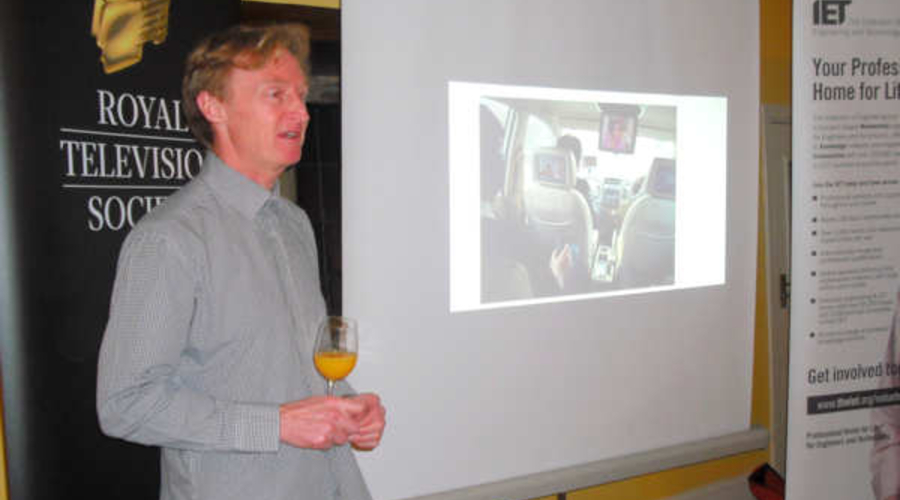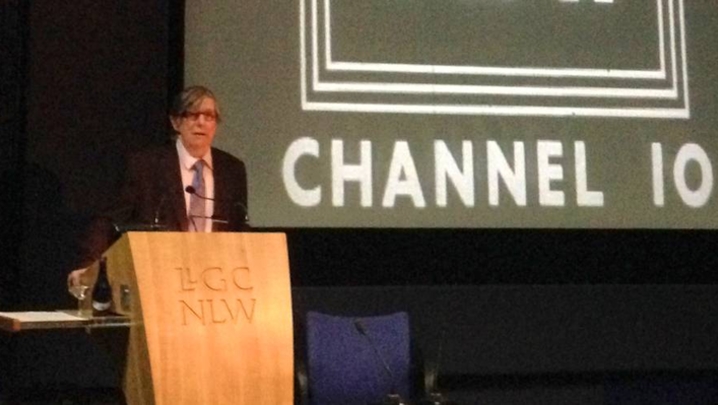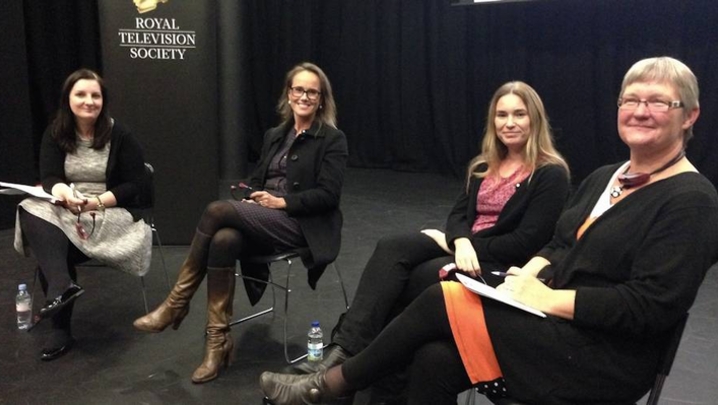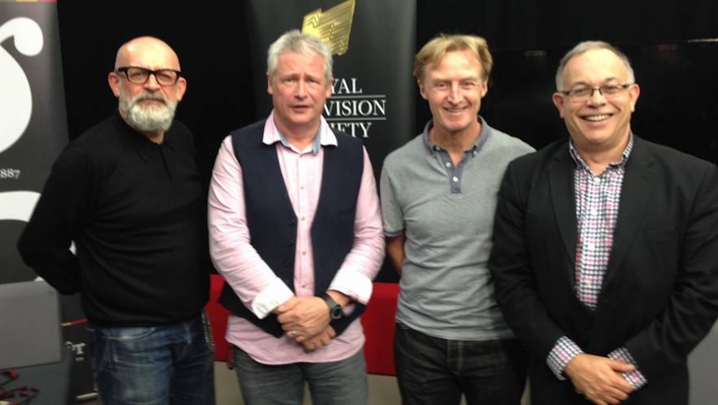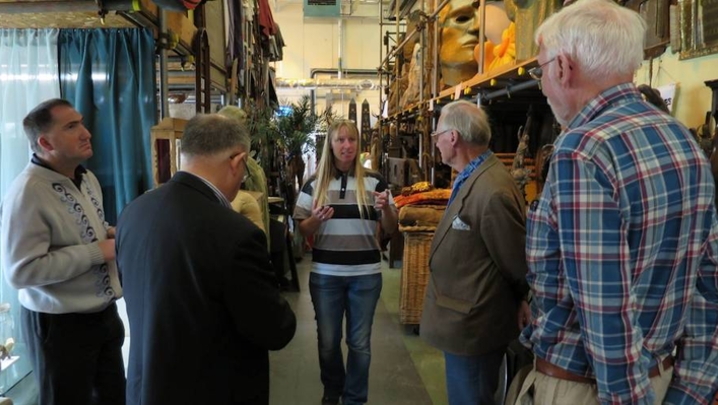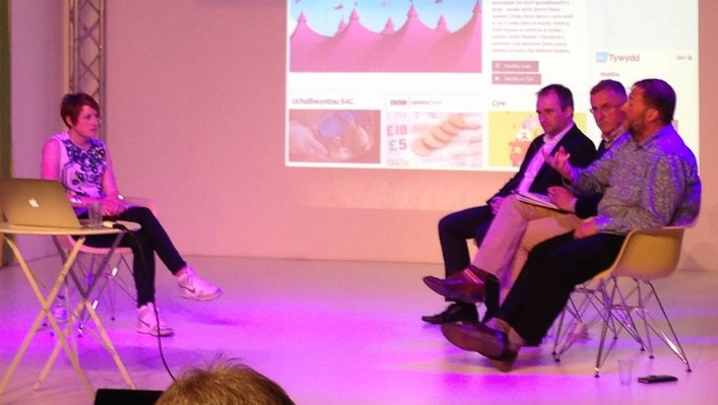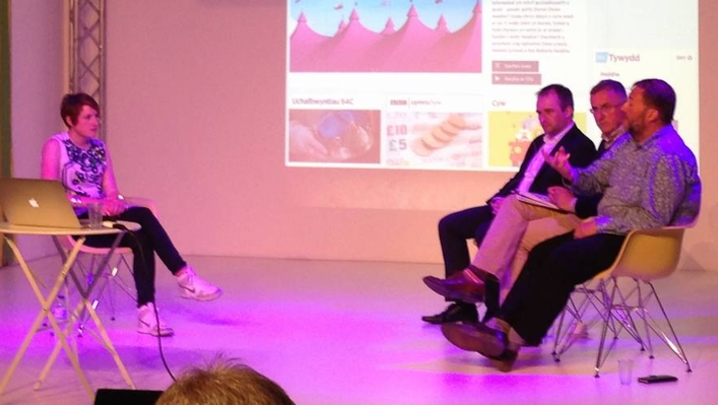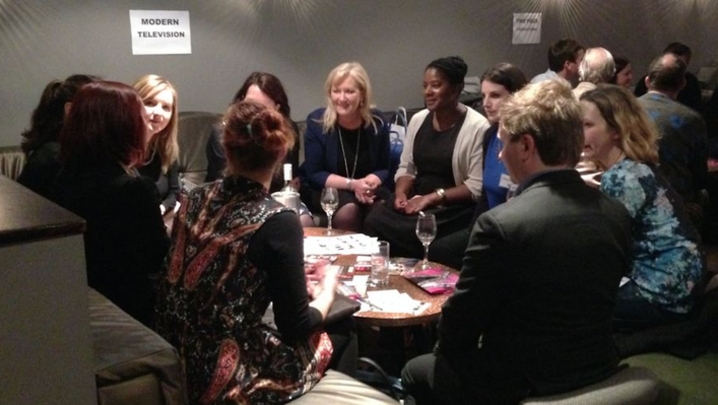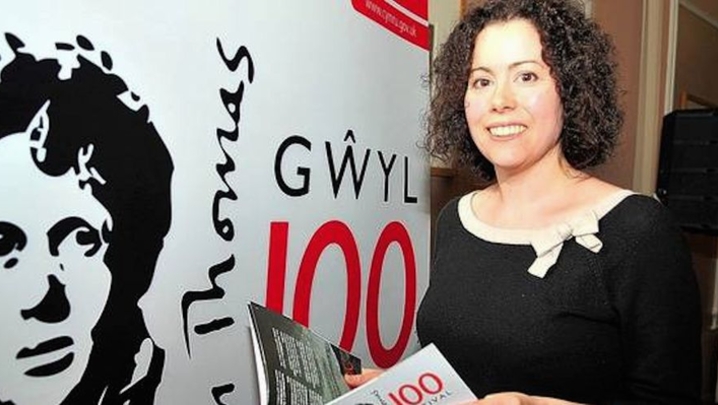Technology and TV - A threat to traditional viewing or a challenge to the Industry?
"New types of media never replace the existing modes ... instead a convergence takes place ... leading to a different way and field of use for these older forms." Wolfgang Riepl, a German Newspaper Editor, made this observation in 1913, and in his lecture in the Great House Hotel in Bridgend, Tim Hartley, the RTS Wales Centre Chair (above), suggested that this principle still holds true today. "Film did not replace live theatre, television did not replace the cinema and today's broadband social networks are complementing rather than replacing television viewing," he said.
Tim was speaking at an event held with the Institution of Engineering and Technology (IET) on the 26th January. Ofcom figures suggest that the average adult in the UK spends over half their waking hours engaged in media or communications activities. Viewing of traditional television still dwarfs on-line viewing. Although Korean pop star PSY's 'Gangnam Style' video has been watched for 38 million hours on YouTube by US residents, in total viewing hours that's only equivalent to four and a half episodes of 'The Big Bang Theory'. Tim suggested that, "traditional television is incredibly resilient and has reinvented itself time and again".
Although broadcast and on-line media outlets have proliferated in a global and connected world, Tim said in this era of apparent abundance 'good' TV content is still a scarce commodity. But he noted that video on demand and broadband services are threatening some of the traditional business models, citing the growth of Netflix's 50 million plus subscribers in 40 countries. "Rather than getting left behind, traditional broadcasters and pay TV operators are recognising these changes and are expanding their subscription video on demand offers too," he said. Good TV is not cheap. The re-make of 'House of Cards' cost $100 million, enough to fund 14 BBC Drama Series.
Despite a faster move to on-line services, new entrants to an already crowded market, audience fragmentation and threats to funding, Tim said, "Television still looks pretty much the same. New formats, devices and innovation - yes. But television has evolved and we have chosen to stick with it."

